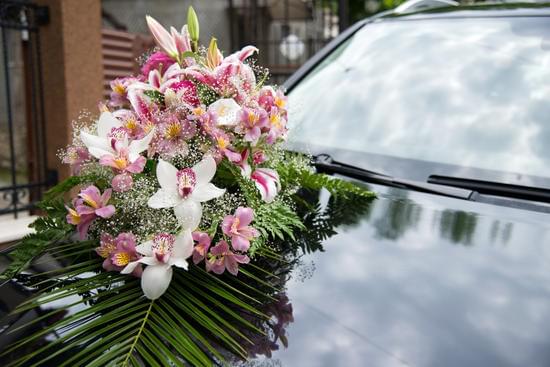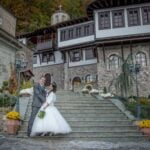Who can officiate a wedding in PA? Understanding the legal requirements for officiating a wedding in Pennsylvania is crucial for individuals seeking to perform this important ceremony. Whether you’re considering a religious official, non-religious officiant, temporary officiant, or even an out-of-state officiant, it’s essential to navigate the specific laws and regulations surrounding this role in the state of PA.
In Pennsylvania, the process of becoming an officiant involves adhering to state laws and regulations. This includes understanding the role of ordained ministers, priests, and other religious leaders in officiating weddings, as well as exploring options for non-religious officiants such as judges, mayors, and justices of the peace. Additionally, individuals may also explore the process for becoming temporary officiants for a specific wedding in PA.
Furthermore, with the rise of online ordination, individuals can also delve into the legality of online ordination and its role in performing weddings in Pennsylvania. For those considering an out-of-state officiant to conduct their wedding ceremony in PA, it’s important to address the rules and procedures associated with this choice. This article will provide comprehensive insights into these legal requirements while offering tips for couples on selecting the right officiant for their Pennsylvania wedding.
PA State Laws
When it comes to officiating a wedding in Pennsylvania, it’s important to understand the specific legal requirements and regulations that govern this role. In the state of PA, there are clear guidelines for who can officiate a wedding, ensuring that the marriage is legally recognized.
According to Pennsylvania state laws, ordained ministers, priests, and other religious leaders are authorized to perform wedding ceremonies. Additionally, judges, mayors, and justices of the peace have the legal authority to officiate weddings in the state.
For religious officials looking to officiate weddings in Pennsylvania, it’s essential to be ordained or licensed by a recognized religious organization. This allows them to legally marry couples according to the laws of the state. Non-religious officiants such as judges, mayors, and justices of the peace must also be duly elected or appointed in order to solemnize marriages within Pennsylvania. These requirements help ensure that all weddings performed in PA are legally binding and valid.
In addition to ordained ministers and non-religious officials, Pennsylvania also allows for temporary officiants to perform weddings for a specific ceremony. This process involves obtaining a one-time permission from the court to solemnize a particular marriage.
This option provides flexibility for couples who may have a friend or family member they wish to have officiate their wedding ceremony. Understanding these specific legalities and regulations surrounding officiants in Pennsylvania is crucial for anyone seeking to perform a marriage in the state.
Religious Officials
In Pennsylvania, the role of religious officials in officiating weddings is governed by specific legal regulations. Under state law, ordained ministers, priests, and other religious leaders are authorized to solemnize marriages. This means that they have the legal authority to perform wedding ceremonies and sign marriage licenses. It’s important for couples to understand the requirements and responsibilities associated with having a religious official officiate their marriage.
Here are some key points to consider when it comes to the role of religious officials in officiating weddings in Pennsylvania:
- Ordained Ministers: In Pennsylvania, ordained ministers are individuals who have been formally recognized and authorized by a religious organization to perform sacred duties, including officiating weddings. These ministers must be in good standing with their respective religious institutions and adhere to any specific requirements or guidelines set forth by their denomination.
- Priests and Religious Leaders: Similarly, priests and other religious leaders such as rabbis, imams, or other clergy members are permitted to officiate weddings in Pennsylvania. These individuals play a crucial role in conducting traditional religious ceremonies and providing spiritual guidance for couples as they enter into marriage.
- Religious Ceremonies: For many couples, having a religious official officiate their wedding is a deeply meaningful and spiritual choice. Whether it’s a Christian church service, a Jewish wedding ceremony, or an Islamic nikkah, couples can work closely with their chosen religious official to customize their wedding ceremony according to their faith traditions and beliefs.
It’s essential for couples seeking a religious official to officiate their wedding in PA to ensure that the individual meets the legal requirements and has the proper authorization from their respective religious institution. By choosing a trusted and reputable religious official who aligns with their beliefs, couples can create a meaningful and personalized wedding experience that reflects their shared values and spirituality.
Non-Religious Officiants
In Pennsylvania, there are specific legal requirements and regulations surrounding who can officiate a wedding. While religious officials such as ordained ministers, priests, and other religious leaders often come to mind as potential officiants, there are also non-religious options available for couples. Non-religious officiants can include judges, mayors, and justices of the peace.
Judges in Pennsylvania have the authority to perform wedding ceremonies within the state. This can be an appealing option for couples seeking a non-religious officiant with the legal authority to solemnize their marriage. Additionally, mayors and justices of the peace also have the ability to officiate weddings in PA.
It’s important for couples considering a non-religious officiant to understand the legal requirements and responsibilities associated with each type of official. Doing so will ensure that their marriage is legally recognized in the state of Pennsylvania. Couples should also research any specific documentation or procedures required by the chosen non-religious officiant to ensure a smooth and legally valid wedding ceremony.
| Non-Religious Officiants | Details |
|---|---|
| Judges | Have authority to perform wedding ceremonies within PA |
| Mayors | Option for couples seeking a non-religious officiant in PA |
| Justices of the Peace | Potential option for officiating weddings in Pennsylvania |
Temporary Officiants
In Pennsylvania, there are specific legal requirements for individuals to officiate a wedding, and one option is to become a temporary officiant. This section will outline the process for individuals to obtain temporary officiant status for a specific wedding in PA, providing couples with an alternative option for choosing an officiant.
Eligibility Requirements
To become a temporary officiant in Pennsylvania, individuals must meet certain eligibility requirements. Typically, the individual must be at least 18 years old and have no prior felony convictions. They may also need to provide documentation of their ordination or religious credentials if they are not ordained by a recognized religious institution.
Application Process
The process for becoming a temporary officiant in PA involves completing an application through the county probate court or clerk’s office. The individual will need to provide personal information, details about the upcoming wedding ceremony they will be officiating, and any supporting documents required by the state or county.
Responsibilities and Limitations
Once approved as a temporary officiant, individuals are authorized to perform only the specific wedding ceremony for which they applied. It’s important for couples to understand that temporary officiants may not have the same authority as ordained ministers or other religious officials who can officiate weddings in PA more broadly. Couples should carefully consider whether a temporary officiant meets their needs and preferences before moving forward with this option.
By understanding the process for individuals to become temporary officiants for a specific wedding in Pennsylvania, couples can explore all their options when selecting an officiant who can make their special day memorable and meaningful.
Online Ordination
In recent years, online ordination has become a popular option for individuals seeking to officiate weddings in Pennsylvania. This method allows people to become ordained ministers or religious leaders through online platforms, providing them with the legal authority to perform marriage ceremonies. However, before pursuing online ordination, it is crucial to understand the legality of this practice in the state of Pennsylvania.
Here are some key points to consider about online ordination and its role in officiating weddings in Pennsylvania:
- Legality: The validity of online ordination is a topic of debate in Pennsylvania. While some counties may recognize ordinations from certain online organizations, others may not. It is important for individuals who are considering becoming ordained online to research and understand the specific laws and regulations in their county regarding the recognition of online ordination.
- Role: For those who successfully obtain online ordination that is recognized in their county, they can officiate weddings just like any other ordained minister or religious leader. This means they have the legal authority to solemnize marriages and perform wedding ceremonies in accordance with Pennsylvania state laws.
- Considerations: Couples who are planning to have an officiant with an online ordination should communicate with their chosen individual about their credentials and ensure that their marriage will be legally valid. It is also advisable for couples to check with their county clerk’s office to confirm the requirements for officiants and the acceptance of online ordained ministers.
Ultimately, while online ordination can be a convenient option for individuals looking to officiate weddings in Pennsylvania, it is essential to carefully navigate the legal aspects and ensure compliance with local regulations. By taking the time to research and understand the specific rules regarding online ordination in their county, aspiring officiants can confidently proceed with their role in solemnizing marriages.
Out-of-State Officiants
Understanding the Legal Requirements
When it comes to out-of-state officiants performing weddings in Pennsylvania, there are specific legal requirements and procedures that must be followed. Couples who wish to have an out-of-state officiant preside over their wedding should be aware of these regulations to ensure that their marriage is legally recognized.
Obtaining a Temporary Officiant Certificate
Out-of-state officiants who want to perform a wedding in Pennsylvania can apply for a temporary officiant certificate from the Register of Wills in the county where the ceremony will take place. This process involves submitting an application, providing proof of ordination or authorization to perform marriages, and paying a fee. It’s important for out-of-state officiants to follow the necessary steps to obtain this certificate to avoid any legal complications with the marriage.
Reciprocity Agreements
Pennsylvania may also have reciprocity agreements with certain states that allow out-of-state officiants to legally perform marriage ceremonies within its borders. It’s essential for couples and their chosen out-of-state officiant to research whether such agreements exist between Pennsylvania and the officiant’s state of residence. This can streamline the process and ensure that the marriage is valid under Pennsylvania law.
It is important for anyone considering having an out-of-state official lead their wedding ceremony in Pennsylvania understand all relevant legal requirements thoroughly prior to proceeding with arrangements.
Tips for Choosing an Officiant
When it comes to choosing an officiant for your Pennsylvania wedding, there are a few key factors to consider. Whether you opt for a religious or non-religious ceremony, it’s essential to find an officiant who aligns with your values and vision for your special day. Here are some tips for selecting the right officiant for your Pennsylvania wedding.
First and foremost, consider the type of ceremony you desire. If you have a specific religious affiliation, you may prefer a religious officiant such as an ordained minister, priest, rabbi, or other religious leader. On the other hand, if you’re seeking a secular or non-religious ceremony, you have the option of choosing a judge, mayor, justice of the peace, or even a friend or family member who has been designated as a temporary officiant.
It’s important to meet with potential officiants in person or via video call to ensure they understand and respect your wishes for the ceremony. Discuss the details of the wedding, including any specific readings, rituals, or customs you wish to incorporate. Ultimately, you want an officiant who not only understands your vision but also supports and enhances it through their presence and delivery during the ceremony.
Another crucial aspect to consider is the legal requirements for officiants in Pennsylvania. According to state law, ordained ministers and religious leaders from out-of-state may legally perform weddings in Pennsylvania. Additionally, individuals can become temporary officiants in PA by obtaining a “designation” from their county clerk’s office specifically for one wedding ceremony. Understanding these legalities can help guide your decision-making process when choosing an officiant for your Pennsylvania wedding.
| Tips for Choosing an Officiant | Guidance |
|---|---|
| Consider the type of ceremony | Religious vs. Non-religious |
| Meet with potential officiants | Discuss details and ensure understanding |
| Understand legal requirements | Ordained ministers vs. Temporary officiants |
Conclusion
In conclusion, the process of officiating a wedding in Pennsylvania is governed by specific legal requirements and regulations. Religious officials, including ordained ministers, priests, and other leaders, play a significant role in performing weddings in the state. Additionally, non-religious officiants such as judges, mayors, and justices of the peace also have the authority to officiate marriages in Pennsylvania.
Furthermore, individuals have the opportunity to become temporary officiants for a specific wedding by following the necessary procedures outlined by the state. Online ordination is also recognized in Pennsylvania, but it is essential to understand the legality and requirements associated with this option before pursuing it.
Couples seeking an officiant for their Pennsylvania wedding should consider various factors such as compatibility, experience, and personal preferences. It is important to research and communicate with potential officiants to ensure that they align with the couple’s vision for their special day.
For further information on who can officiate a wedding in PA and tips for choosing the right officiant, individuals can refer to resources provided by the Pennsylvania Department of Health or seek guidance from experienced wedding planners and professionals in the industry.
Frequently Asked Questions
How Can I Legally Officiate a Wedding in PA?
To legally officiate a wedding in PA, you must be a minister, priest, rabbi or an ordained member of the religious society. You can also apply for a one-time officiant status through the state.
Can a District Justice Marry You in PA?
Yes, a District Justice can marry you in PA. They have the authority to perform weddings within their district and can also travel to other districts within the state.
How Long Does It Take to Get a Marriage License in PA?
In Pennsylvania, it typically takes about 30 minutes to get a marriage license as long as you have all the necessary documentation and identification with you. The process involves filling out an application, providing proof of identification and paying the required fee. After that, there is a mandatory three day waiting period before the license is issued.

I have been involved in marriages for over 20 years helping couples and singles understand more about them.





